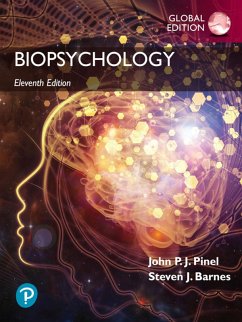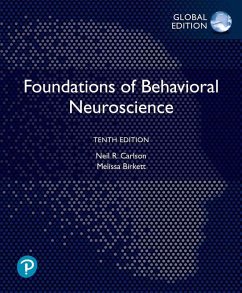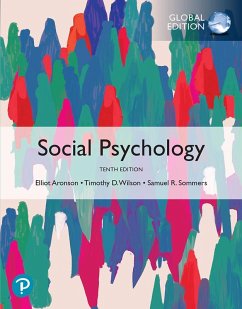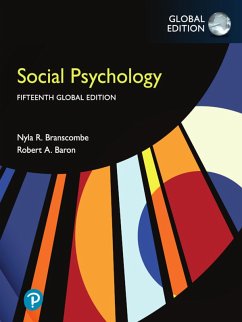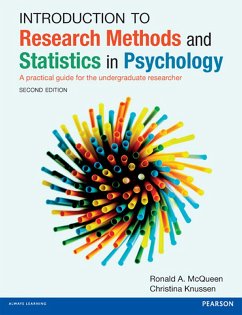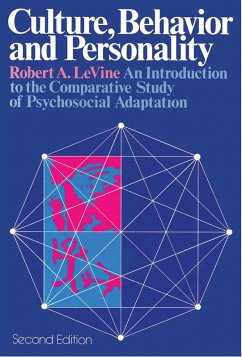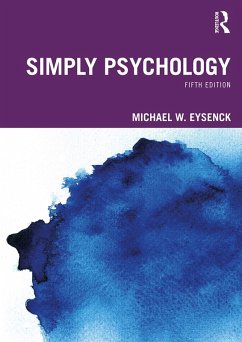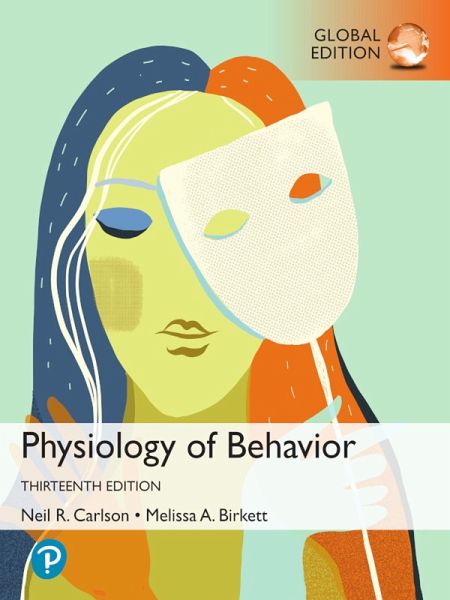
Physiology of Behavior, Global Edition (eBook, PDF)
Versandkostenfrei!
Sofort per Download lieferbar
30,95 €
inkl. MwSt.
Weitere Ausgaben:

PAYBACK Punkte
15 °P sammeln!
Acquire an up-to-date, comprehensive, and accessible overview of behavioural neuroscience.For courses in Physiological Psychology and Biopsychology.Physiology of Behavior, 13th edition, by Carlson and Birkett provides a scholarly yet accessible portrait of the dynamic interaction between biology and behaviour. Authors Neil Carlson and Melissa Birkett drew upon their experience of teaching and working with students to create this comprehensive and accessible guide in behavioural neuroscience.Key features include: chapter-opening case studies sharing real-life experiences around important issue...
Acquire an up-to-date, comprehensive, and accessible overview of behavioural neuroscience.
For courses in Physiological Psychology and Biopsychology.
Physiology of Behavior, 13th edition, by Carlson and Birkett provides a scholarly yet accessible portrait of the dynamic interaction between biology and behaviour. Authors Neil Carlson and Melissa Birkett drew upon their experience of teaching and working with students to create this comprehensive and accessible guide in behavioural neuroscience.
Key features include:
This edition is also available in Revel®.
Revel® is Pearson's newest way of delivering respected content. Fully digital and highly engaging, Revel is an interactive learning environment that enables you to read, practice, and study in one continuous experience.
For courses in Physiological Psychology and Biopsychology.
Physiology of Behavior, 13th edition, by Carlson and Birkett provides a scholarly yet accessible portrait of the dynamic interaction between biology and behaviour. Authors Neil Carlson and Melissa Birkett drew upon their experience of teaching and working with students to create this comprehensive and accessible guide in behavioural neuroscience.
Key features include:
- chapter-opening case studies sharing real-life experiences around important issues in neuroscience
- Chapter Review questions that will help you review and understand what you have read
- a new chapter on the disorders of the developing nervous system with information about disorders of development, autism-spectrum disorders, and attention-deficit/ hyperactivity disorders
- rich, updated art to improve accessibility, and in line with the latest findings and studies in the field
This edition is also available in Revel®.
Revel® is Pearson's newest way of delivering respected content. Fully digital and highly engaging, Revel is an interactive learning environment that enables you to read, practice, and study in one continuous experience.
Dieser Download kann aus rechtlichen Gründen nur mit Rechnungsadresse in A, B, BG, CY, CZ, D, DK, EW, E, FIN, F, GR, HR, H, IRL, I, LT, L, LR, M, NL, PL, P, R, S, SLO, SK ausgeliefert werden.




